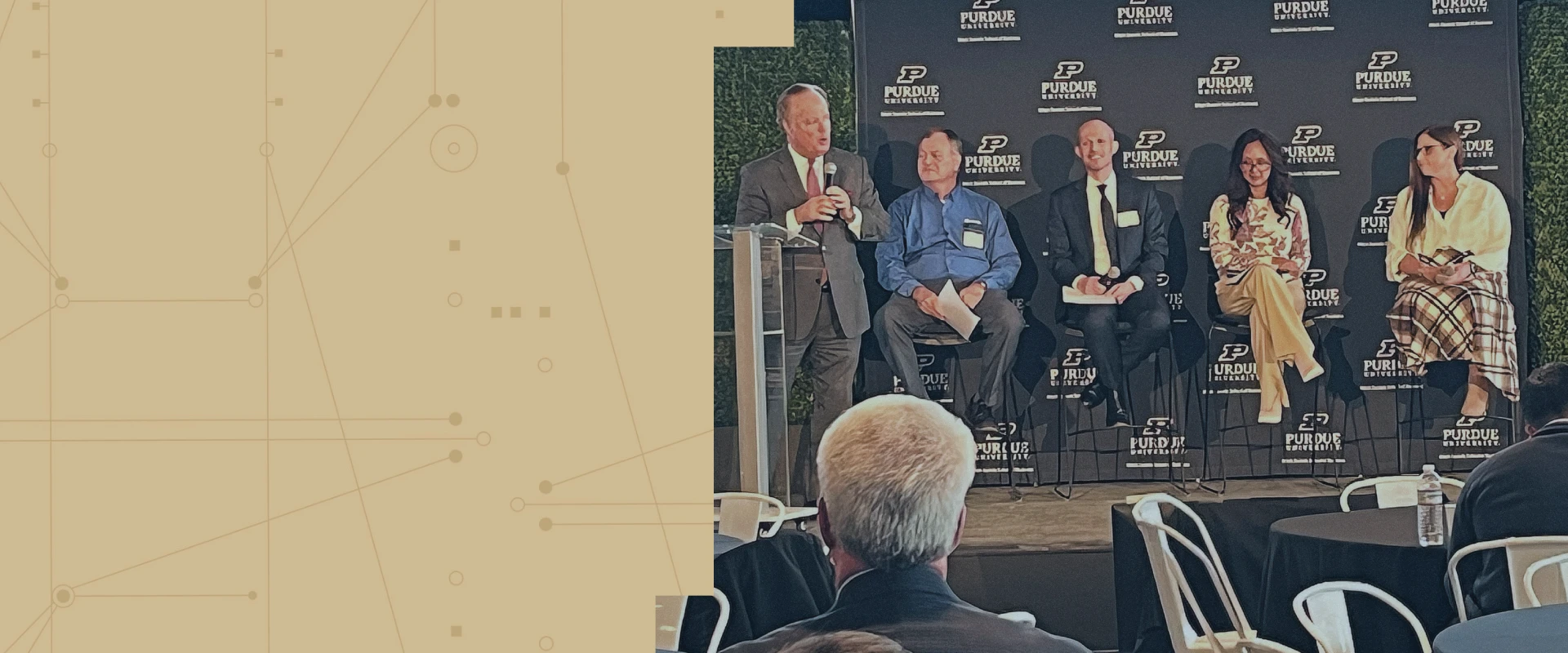
03-20-2025
“We have to get comfortable being uncomfortable.”
That’s the view of today’s global supply chain environment from Janette Hostettler, vice president of manufacturing at Toyota Kentucky. She was part of a panel at the “Strategies for Resilient and Efficient Manufacturing and Supply Chains Symposium” held at 16 Tech in Indianapolis and sponsored by Purdue’s Dauch Center for the Management of Manufacturing Enterprises. Gerry Dick, president of Inside INdiana Business, moderated the session, which also featured Lt. Col. Amanda Femano from the Air Force Institute of Technology; Mike Starzyk, director of maintenance-operational excellence at Allison Transmission; and Bryce Carpenter, chief operating and strategy officer for Conexus Indiana.
Panelists spoke about the uncertainties brought about by disruptions, such as COVID-19 and global tariffs, and the short- and long-term effects they present. One is a change in labor composition.
“We had a considerable change in our workforce after the pandemic,” Starzyk said. “Many of the people who left in that period had 40-plus years of experience, and we lost a lot of knowledge as a result. It’s forced us to extend our onboarding process and do more training with our new employees.”
Hostettler noted a similar change at Toyota. “We had to heavily invest in upskilling and developing our workers,” she said. “About 60% of them have been with the company less than 10 years, so we’ve created our own maintenance training centers.”
Being proactive rather than reactive is also a must for success. Anticipating the next supply chain crisis is crucial.
“We utilize technology to model answers for disruption,” Femano said. “We try to run every scenario in the book.”
Carpenter says Indiana is doing what it can to help keep supply chains moving smoothly. “Many times, companies need to go past their Tier 1 suppliers to get what they need,” he said. “They need to identify hidden suppliers, and we’re doing what we can to grow the ecosystem and get these companies in our state.”
The panelists all agreed that education is a key component in the supply chain equation, beginning with outreach efforts at the high school level.
“Local communities should focus on education. We need to have upskilled workers to make the system work,” Starzyk said.
As part of the upskilling process, Purdue and the Dauch Center for the Management of Manufacturing Enterprises are focused on offering experiential learning for Purdue students. The Vertically Integrated Projects (VIP) Program provides opportunities for undergraduates, including those in the Integrated Business and Engineering degree program, to earn academic credit while engaged in research and design projects. In the classroom, new courses Digital Transformation and Supply Chain Strategy are being taught in the Daniels School of Business and College of Engineering by Dauch Center Director , the Harold T. Amrine Distinguished Professor, and Dauch Center Managing Director .